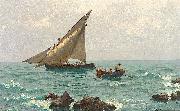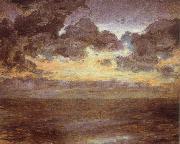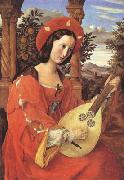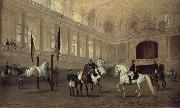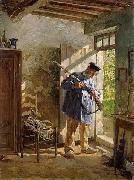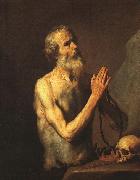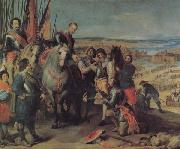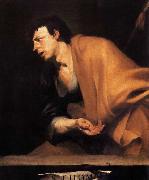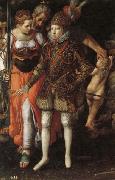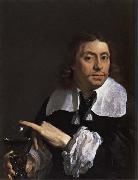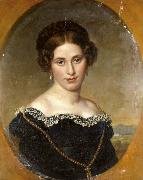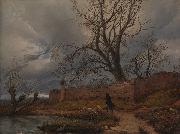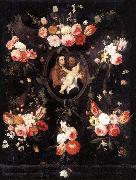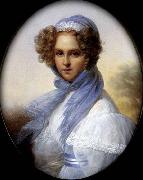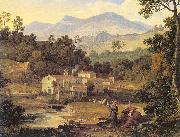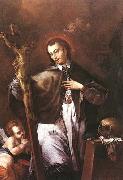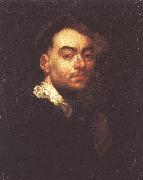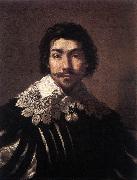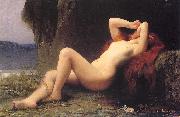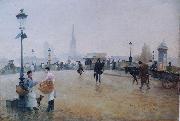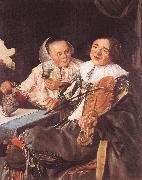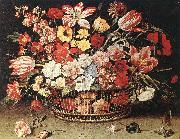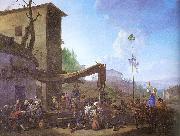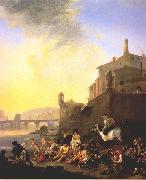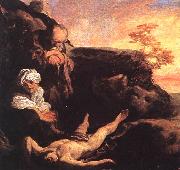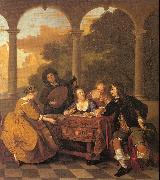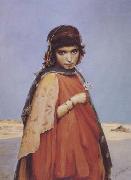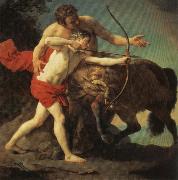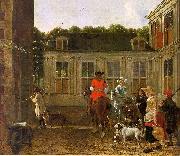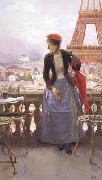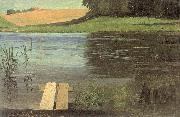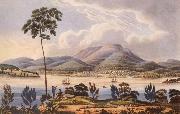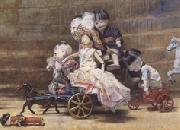|
|
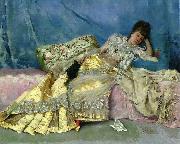 |
Julius LeBlanc Stewart
|
|
(September 6, 1855, Philadelphia, Pennsylvania - January 5, 1919, Paris, France), was an American artist who spent his career in Paris. A contemporary of fellow expatriate painter John Singer Sargent, Stewart was nicknamed "the Parisian from Philadelphia."
His father, the sugar millionaire William Hood Stewart, moved the family to Paris in 1865, and became a distinguished art collector and an early patron of Fortuny and the Barbizon artists. Julius studied under Eduardo Zamacois as a teenager, under Jean-Leo Grôme at the École des Beaux Arts, and later was a pupil of Raymondo de Madrazo.
Stewart's family wealth enabled him to live a lush expatriate life and paint what he pleased, often large-scaled group portraits. The first of these, After the Wedding (1880), showed the artist's brother Charles and his bride Mae, daughter of financier Anthony J. Drexel, leaving for their honeymoon. |
|
|
|
|
|
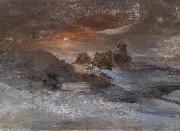 |
Julius Payer
|
|
Julius Johannes Ludovicus Ritter von Payer (2 September 1841 - 19 August 1915) was an Austro-Hungarian arctic explorer and an Arctic landscape artist.
Born Julius Payer, his father Franz Anton Rudolf Payer was a retired officer who died when Julius was only fourteen. Payer attended k.k. cadet school in Lobzowa near Krakew (now Poland). Between 1857 and 1859 he studied at the Theresian Military Academy in Wiener Neustadt (near Vienna). In 1859 he served as a sub-lieutenant with the 36th. infantry regiment in Verona, Northern Italy. He participated in the 1859 Battle of Solferino. Between 1860 and 1863 he served at the garrison in Verona, Italy. In 1863 Payer was assigned as a history teacher to the cadet school in Eisenstadt, Austria. After promotion to the rank of lieutenant first class he was posted to the garrison of Venetia.
In 1862 he started exploratory tours of the Italian Alps and Hohe Tauern in his free time. From 1864-1868 he explored the Adamello-Presanella Group and the Ortler Alps. He was the first to climb Adamello (3554m). His tours resulted in creating a detailed topographical map at a scale 1:56,000. Due to his achievements, Payer was transferred to the Austrian Military Cartographical Institute in Vienna.
|
|
|
|
|
|
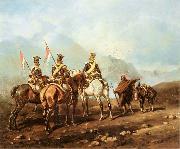 |
Juliusz Kossak
|
|
(Nowy Wiśnicz, 15 December 1824 - 3 February 1899, Krakew) was a Polish historical painter and master illustrator who specialized in battle scenes, military portraits and horses. He was the progenitor of an artistic family that spanned four generations. father of painter Wojciech Kossak and grandfather of painter Jerzy Kossak.
Juliusz Kossak grew up in Lwew during the military partitions of Poland. He obtained a degree in law at the Lwew University encouraged by his mother. At the same time he studied painting with Jan Maszkowski and Piotr Michałowski. Beginning in 1844 Kossak worked on commissions for the local aristocracy in Malopolska, Podolia and Wolyn. He married Zofia Gałczyka in 1855 and together they left for Paris where they spent five years. His sons were born there, the twin brothers: Wojciech and Tadeusz (on New Year's Eve 1856-1857) and the younger Stefan in 1858. The family came to Warsaw in 1860 where Kossak obtained a position as the head illustrator and engraver for Tygodnik Illustrowany magazine. They moved to Munich for a year and in 1868 settled in Krakew blessed with five children already. Kossak bought a small estate there, known as Kossakewka, famed for artistic and literary salon frequented by Adam Asnyk, Henryk Sienkiewicz, Stanisław Witkiewicz, Jezef Chełmoki and many others. Juliusz Kossak lived and worked there till the end of his life. In 1880 he was awarded the Cross of Order of Merit by Emperor Franz Joseph of Austria-Hungary for his lifetime achievements as an artist.
|
|
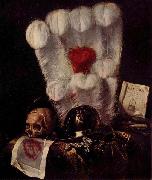 |
Juriaen van Streeck
|
|
(1632 - 1687) was a Dutch Golden Age painter of still lifes.
According to Houbraken, he was good at all sorts of still life subjects, including helmets, books, letters, musical instruments, and skulls or dead animals to indicate the transcience of life.
He was a follower of Willem Kalf and influenced Barend van der Meer.Houbraken also wrote an entry for his son Hendrick van Streeck, who became a student of Emanuel de Witte and painted church interiors.
|
|
|
|
|
|
|
|
|
|
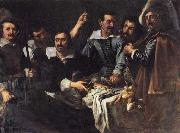 |
Justus Sustermans
|
|
(28 September 1597 - 23 April 1681), also known as Giusto Sustermans, was a Flemish painter in the Baroque style. He was born in Antwerp and died in Florence.
Sustermans is chiefly notable for his portraits of members of the Medici family as he was their court painter. His work can be found in both the Palatina Gallery and the Uffizi Gallery in Florence, and in many other galleries around the globe. During his lifetime he was feted as the finest portrait painter in Italy. |
|
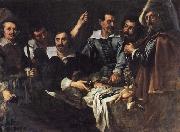 |
Justus Suttermans
|
|
(b Antwerp, bapt 28 Sept 1597; d Florence, 24 April 1681).
Flemish painter |
|
|
|
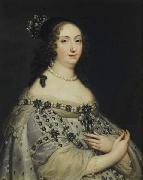 |
Justus van Egmont
|
|
Justus van Egmont (Leiden, 22 September 1601 - Antwerp, 8 January 1674) was a Dutch Golden Age painter and designer of tapestry.
Justus van Egmont moved to Antwerp at age 14 with his family where he became apprenticed to the painter Caspar van den Hoecke (ca. 1585 - ca 1648). In 1618, three years later, he undertook a Grand Tour to Italy in the manner of other artists of his day. This was considered a necessary rite of passage for artists after Karel van Mander published his Schilderboeck in 1604. |
|
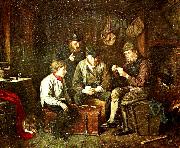 |
k. e. jansson
|
|
Karl Emanuel Jansson, född 7 juli 1846 i Finström, Åland, död 1 juni 1874 i Jomala, var en åländsk konstnär. Han var näst äldst av sju syskon. Han far, Jan Jansson, var en bonde i Pålsböle.
Sina konstnärliga inspiration fick han av sockenmålaren G Kjellgren, vid sex-sju års ålder, när han där lärde sig att läsa och skriva. Efter avlutad skolgång sattes han i skomakarlära. Efter ett år drogs han till Kjellgren och fungerade som hans hjälpreda. Kyrkoherden Frans von Knorring såg i slutet av 1859 några av hans teckningar. Han sände några till Finska Konstföreningens direktion och lovordade Karl.
Förening gav ett bidrag för att kunna studera vid Finska Konstföreningens ritskola i Åbo, under ledning av Robert Wilhelm Ekman. Av Ekman fick han husrum, rit- och målningsmaterial och en hel del extra undervisning. Karl gjorde stora framsteg under de 2 åren han målade med Ekman.
Jansson flyttade hösten 1862 till Stockholm, för att kunna utvecklas mer som artist, och inskrevs som elev vid Kongl. Akademin för de fria konsterna. Han tog anatomiexamen 1863. Han levde under svåra ekonomiska förhållanden och hade svårt att sälja sina verk.
Jansson fick hård kritik för de målningar han sände hem, exempelvis, Babian ätande en råtta, och konstföreningen betraktade dem med avsky. Han började då kritisera sig själv allt mer och mer, och den inställningen behöll han. Han fick inte den uppmärksammad han behövde. Tavlan Den förlorade sonens återkomst, belönades med ett pris. Han avslutade sin utbildning vid akademien 1867 med mycket beröm. Jansson lyckades utverka statsstöd för studier i Dusseldorf och reste dit på hösten 1868. Han åkte hem igen sommaren 1870 och tillbringade ett år på Åland innan han återvände till Dusseldorf.
Han var nu märkt av en tilltagande lungsjukdom. De sista verk han fullbordade var Talmannen och En slant i håven. För att lindra sin sjukdom reste han till Rom i mars 1872. Efter några månader åkte han runt till olika kurorter (Davos, Meran) men inget förbättrade hans tillstånd. Efter en liten tid i D??sseldorf kom han hem till Åland sensommaren 1873.
Karl flyttade in på Jomala gård, där lagman Lönnblad och hans fru tog hand om honom. Han målade några verk, vilka blev ofullbordade. På dödsbädden fick han veta att han belönats på världsutställningen i Wien för sina konstverk Klöveress och Talmannen, samt att han blivit medlem i konstakademin i Sankt Petersburg. Han dog 1 juni 1874, inte ens fylld 28 år. |
|
|
|
|
|
|
|
|
|
|
|
|
|
|
|
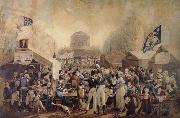 |
Krimmel John
|
|
American portrait and genre painter.
b.1789 d.1821
|
|
|
|
|
|
|
|
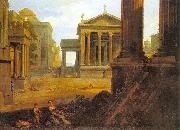 |
Lemaire, Jean
|
|
1763-64, oil on canvas, The Hermitage, St. Petersburg |
|
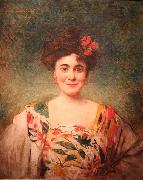 |
Leon Joseph Florentin Bonnat
|
|
(20 June 1833 - 8 September 1922) was a French painter.
He was born in Bayonne, but from 1846 to 1853 he lived in Madrid, where his father owned a bookshop. While tending his father's shop, he copied engravings of works by the Old Masters, developing a passion for drawing. In Madrid he received his artistic training under Madrazo. He later worked in Paris, where he became known as a leading portraitist, never without a commission. His many portraits show the influence of Velezquez, Jusepe de Ribera and other Spanish masters, as well as Titian and Van Dyke, whose works he studied in the Prado. Following the period in Spain Bonnat worked the ateliers of the history painters Paul Delaroche and Leon Cogniet (1854) in Paris. Despite repeated attempts, he failed to win the prix de Rome, finally receiving only a second prize. However, a scholarship from his native Bayonne allowed him to spend three years in Rome (1858 - 60) independently. During his stay in Rome, he became friends with Edgar Degas, Gustave Moreau, Jean-Jacques Henner and the sculptor Henri Chapu.
He won a medal of honor in Paris in 1869, going on to become one of the leading artists of his day. Bonnat went on to win the Grand Officer of the Legion d'honneur and became a professor at the Ecole des Beaux Arts in 1882. Bonnat was quite popular with American students in Paris. In addition to his native French, he spoke Spanish and Italian and knew English well, to the relief of many monolingual Americans. In May 1905 he succeeded Paul Dubois as director of the Ecole des Beaux-Arts. Bonnat "was a liberal teacher who stressed simplicity in art above high academic finish, as well as overall effect rather than detail," explains Julius Kaplan (see References). Bonnat's emphasis on overall effect on the one hand, and rigorous drawing on the other, put him in a middle position with respect to the Impressionists and academic painters like his friend Jean-Leon Gerôme.
|
|
|
|
|
|
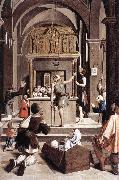 |
LIEFERINXE, Josse
|
|
French painter, Provençal school (active 1493-1508 in Marseille) |
|
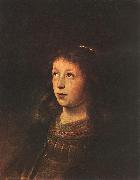 |
LIEVENS, Jan
|
|
Dutch painter (b. 1607, Leiden, d. 1674, Amsterdam) |
|
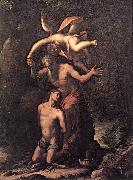 |
LIGOZZI, Jacopo
|
|
Italian painter, Florentine school (b. 1547, Verona, d. 1627, Firenze) |
|
|
|
|
|
|
|
|
|
|
|
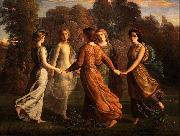 |
Louis Janmot
|
|
(21 May 1814 - 1 June 1892) was a French painter and poet.
Janmot was born in Lyon of Catholic parents who were deeply religious. He was extremely moved by the death of his brother in 1823 and his sister's in 1829. He became student at the Royal College of Lyon where he met Frederic Ozanam and other followers of his philosophy professor, Abbe Noirot. In 1831 he was admitted to the École des Beaux-Arts de Lyon and a year later, he won the highest honor, the Golden Laurel. In 1833, he came to Paris to take painting lessons from Victor Orsel and Jean-Auguste-Dominique Ingres. With other Lyon painters, he entered the Society of St. Vincent de Paul. In 1835, he went to Rome with Claudius Lavergne, Jean-Baptiste Frenet and other students and met Hippolyte Flandrin.
After his come back to Lyon in 1836, Janmot would attract the attention of critics of the Salon de Paris in conducting large-scale paintings with religious inspiration such as The Resurrection of the son of the widow of Nain (1839) or Christ in Gethsemane (1840). After 1845, he attracted the interest of Charles Baudelaire with his painting Flower of the Fields that allowed him to access to the Salon of 1846. Theophile Gautier was impressed by his Portrait of Lacordaire (1846). But the failure of his Poem of the Soul at the Universal Exhibition of 1855 disappointed him. In December of that year he married Leonie Saint-Paulet, from a noble family in Carpentras.
In 1856, Janmot obtained a commission to paint a fresco (since destroyed) representing the Last Supper for the church of St. Polycarp. Other orders followed, including the decoration of the dome of the Church of St. Francis de Sales and for the town hall that had been renovated by his friend the architect T. Desjardins. He was then appointed professor at the École des Beaux-Arts.
|
|
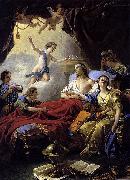 |
Louis Jean Francois Lagrenee
|
|
(December 30, 1724 - June 19, 1805) was a French painter, a pupil of Carlo Vanloo. His younger brother Jean-Jacques Lagren??e was also a painter.
Lagrenee was born in Paris. In 1755 he became a member of the Royal Academy, presenting as his diploma picture the Rape of Deianira (Louvre). He visited Saint Petersburg at the call of the empress Elizabeth, and on his return was named in 1781 director of the French Academy in Rome, a position he kept until 1787. He there painted the Indian Widow, one of his best-known works.
In 1804 Napoleon conferred on him the cross of the l??gion d'honneur, and on June 19, 1805 he died in the Louvre, of which he was honorary keeper.
|
|
|
|
|
|
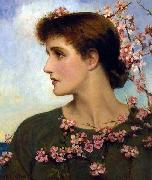 |
Louise Jopling
|
|
(16 November 1843 - 19 November 1933) was an English painter of the Victorian era, and one of the most prominent women artists of her generation.
Louise Goode was born in Manchester, fifth child of railway contractor T. S. Goode. She married at seventeen to civil servant Frank Romer. The Baroness de Rothschild, a connection of Romer's, encouraged Louise to pursue and develop her art. In the later 1860s she studied in Paris with Charles Joshua Chaplin and Alfred Stevens, and first exhibited her work at the Salon. She entered works into the Royal Academy shows, 1870-73 (as Louise Romer). |
|
|
|
|
|
|
|
|
|
|
|
|








